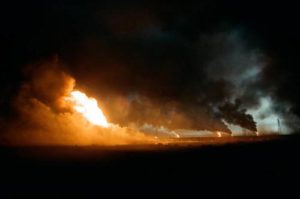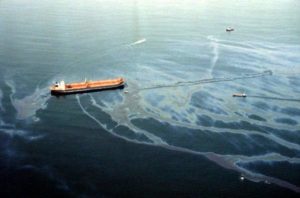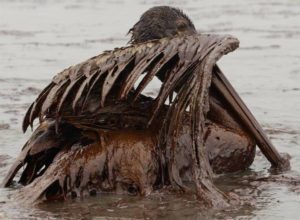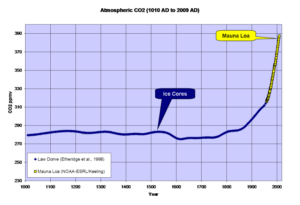The privilege of scientific ignorance
NYU, where I teach, is a stronghold of social justice activity, as is Columbia, where I went to school. Since before college I’ve worked on causes to promote equality along genders, skin colors, geography, sexual preferences, and more. I protested Apartheid, my government’s actions in Central America, and more. I work on the environment. The list goes on.
The term privilege gets thrown around. Being white, male, and fit, the function I see the term used most is to silence people with these properties.
Whether someone is privileged or not, calling someone privileged seems to imply that the person leveling the charge and people who agree with that person believe that the charged person’s viewpoint is so unconsidered as to be worthless. Since not all agree on its definition, people can use it freely, and many do.
At the extreme they’ll say to the privileged person, “you should just shut up and listen.” Actually, they get more extreme sometimes with shouting others down or violence, but the message of shut up and listen comes across clearly.
Nature and how it works
Science is the study of nature. I learned science mostly to see and appreciate its beauty more and at deeper levels. I love the beauty of nature—its purity and cleanliness.

Nature as I love and try to keep
Studying it has also led me to understand how it works more. Conservation of energy is both beautiful to me as a deep symmetry and a useful tool for understanding nature. Nobody has seen nature not conserve energy.
It seems most people don’t understand or believe that nature conserves energy. Maybe they think it happens in a lab but not in the world. In particular, they seem not to recognize that turning on a light, turning on an air conditioner, or flying a plane requires using energy, that that energy has to come from some place, that creating that energy pollutes, and that pollution hurts other people as well as other species.
People who understand nothing of how an airplane wing produces lift or how a jet engine works think nothing of flying around on a whim. For hundreds of thousands of years until about a century ago, people considered human flight impossible. Achieving it was one of the most significant achievements of science and engineering. Making it available to the public was one of the most significant achievements of markets.
Well, except if you consider how much it pollutes and how much the demand for fuel leads to destroying the beauty of nature where we drill for it, refine it, transport it, and do anything with it. It leads to people kicking others off land, diverting money that would have gone to many to a few. It leads to wars.
People who have no idea how the miracle of human flight happened or works, who blind themselves to the consequences of their thirst for fuel on nature, markets, people, communities, and so on—scientifically ignorant—call the prospect of not flying impossible.
What nearly all humans who have ever lived could never have dreamed of—people who found ways to be happy, who created in their lives adventure, discovery, family connections, and all the things people today seek from travel—they call necessary for life, yet seem no happier than others.
Not only nearly everyone who has ever lived, but most people today can’t afford to fly. It seems the people least able to fly are hurt most by the pollution resulting from flying and the geopolitical injustices resulting from the thirst for fuel to power what the scientifically ignorant consider impossible to forgo.
The privilege of scientific ignorance
The ability to claim you have no choice, that to do otherwise is impossible—claims flying in the face of all history and reason—to do an activity that hurts people and to act as if your actions are benign or even helping people you’re hurting seems to me the height of privilege.
I call this privilege the privilege of scientific ignorance. I see it as mostly as a faked ignorance based on suppressing emotions and awareness that they know but don’t want to face. That is, they know what they claim is necessary is a choice, they know their actions hurt others, they know few alive today or who ever lived could do what they are doing. They choose to deny knowing with self-serving, specious, fatuous claims like, “But one day there will be solar planes” or “But I have to see my relatives, what else can I do?”
I don’t hear many of them telling themselves to shut up and listen. Why should they, when they’ve convinced themselves that they have no choice. Anyone who thinks otherwise, from their perspective, doesn’t understand. They probably think others should shut up and listen.
If only nature would shut up and listen. Then we could violate conservation of energy and wouldn’t create this:

Kuwait invasion oil fire

Exxon Valdez oil spill

BP explosion

Children playing at the shore in Cavite Province, Philippines, despite health dangers of an oil spill.

BP oil spill

CO2 levels rising
Where do they think it comes from?
Where do they think these results come from if not their actions?
Ignorance doesn’t make it go away. Claiming not traveling is impossible doesn’t mean it’s impossible. It means you lack imagination.
It must be blissful to think you can do whatever you want without consequence, all the more when your actions pollute a once-pure world and hurt innocent, helpless people who lack your privilege.
What privilege!
Let’s return to this

Let’s return to this, people. Clean and pure.
Read my weekly newsletter

On initiative, leadership, the environment, and burpees
Pingback: Buzzfeed’s privilege “calculator”: How I Did » Joshua Spodek